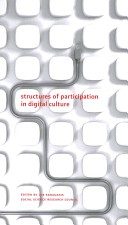Books, Brochures, and Chapters>Book Chapter: Bowker, Geoffrey C. (2007), The Past and the Internet, Retrieved on 2013-06-29
Folksonomies: information post modernism Memes
30 JUN 2013
 The Past and Who Has Access to It
The Past and Who Has Access to It
What we know about the past—and who has access to such knowledge—has changed dramatically with each such change. The changes run far deeper than the mere proliferation of data points. As written records of large estates held in monasteries in France achieved legal and social dominance, the role of women as the tellers of the past fell into decline (Geary, 1994): The technological and the social were deeply intertwined. The outcome was that different kinds of records were kept. With the in...The past was once only available through memory, then only available to those who had access to records, and now available to everyone.
30 JUN 2013
 Our Collective Memory
Our Collective Memory
Taken globally, the set of traces that we leave in the world does without doubt add up to something. It is through operations on sets of traces that I understand an event that I take part in. Tolstoy wrote about the foot soldier in the Napoleonic wars. The soldier he describes cannot have the experience of the war he is waging nor the battle he is fighting because the only “global” traces of the war are inscriptions—notably, maps and statistics. There is no scalable observation that mov...No one soldier experiences a War. They experience details from their microcosm encounter with the war. The war itself is a collective memory experienced only in history books.
30 JUN 2013
 Digital Archiving Creates an Immense Wealth of History
Digital Archiving Creates an Immense Wealth of History
With digital archiving in all its forms, however, a new regime of technologies for holding past experience has emerged. Our past has always been malleable, but now it is malleable with a new viscosity. Whereas in the past our experiences were frequently (literally!) pigeonholed into rigid classification systems, leading to a relative paucity of tales we could tell of our past, today the traces have multiplied and the rigid classifications are withering. (Who now does a “tree” search using...We once had to document history, but now our lives are documented for us all over the place online.
30 JUN 2013
 The Epoch of Potential Memory
The Epoch of Potential Memory
One can see Manovich’s argument becoming true in the development
of database technology the 20th century. The first commercially available
computer databases were organized hierarchically. If you wanted to get to
a particular piece of information, you went to the overarching category and
made a series of choices as this category broke down into groups then subgroups
until you got to the specific piece of information that you required.
This mode of traveling through a database was called “...Folksonomies: information technology history
Folksonomies: information technology history
We live in a world where we can pull any aggregation of facts out of historical references to produce the aspects of history we wish to explore. It is dynamic and full of potential.
Parent Reference

Books, Brochures, and Chapters>Book: Karaganis, Joe (2007), Structures of participation in digital culture, Social Science Research, Retrieved on 2013-06-29Source Material [books.google.com]
Folksonomies: computers 



